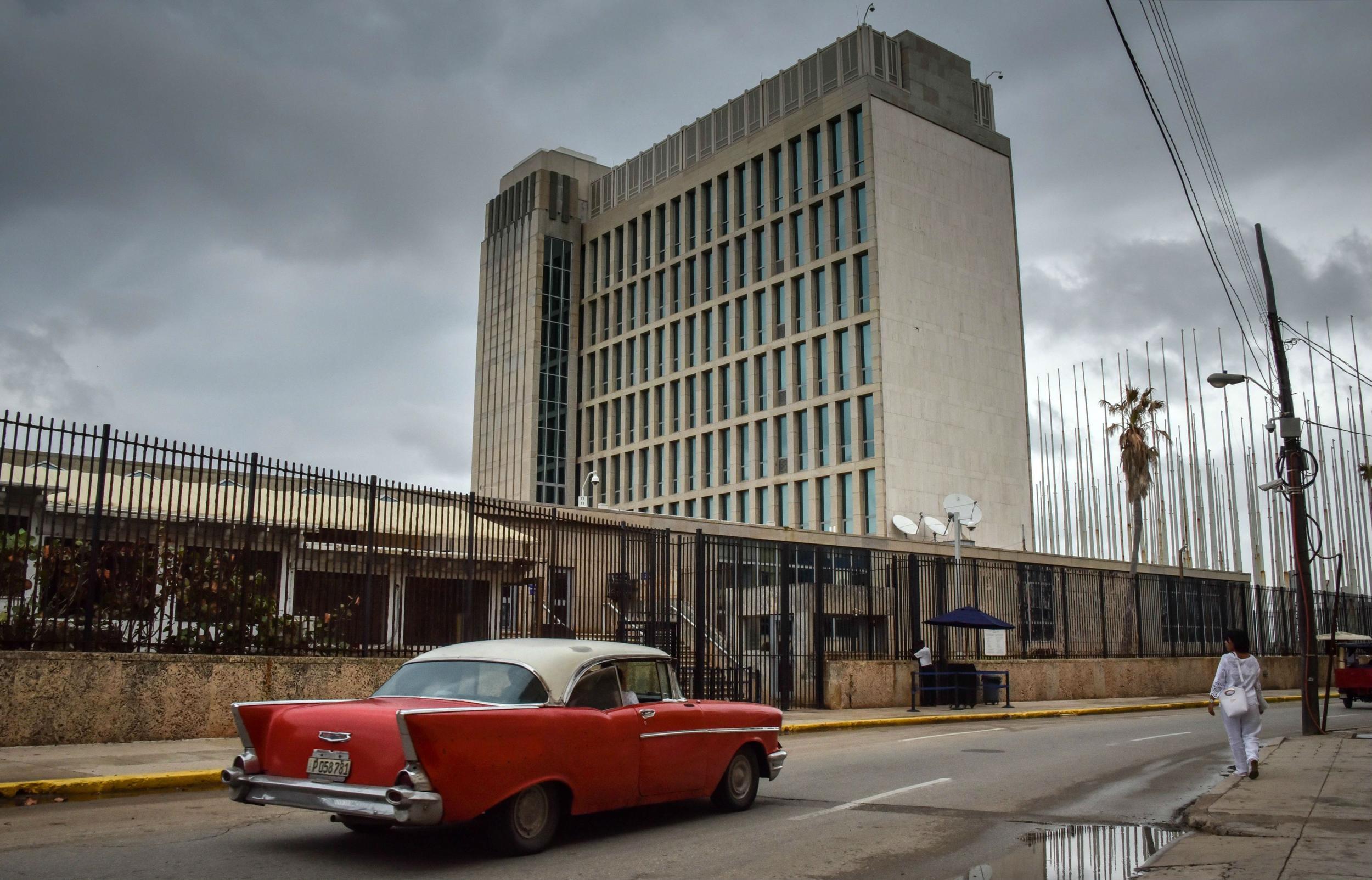Donald Trump expels 15 Cuban diplomats following mysterious 'sonic attacks' on 23 US embassy staff
The move is a set-back to recent diplomatic detente

Your support helps us to tell the story
From reproductive rights to climate change to Big Tech, The Independent is on the ground when the story is developing. Whether it's investigating the financials of Elon Musk's pro-Trump PAC or producing our latest documentary, 'The A Word', which shines a light on the American women fighting for reproductive rights, we know how important it is to parse out the facts from the messaging.
At such a critical moment in US history, we need reporters on the ground. Your donation allows us to keep sending journalists to speak to both sides of the story.
The Independent is trusted by Americans across the entire political spectrum. And unlike many other quality news outlets, we choose not to lock Americans out of our reporting and analysis with paywalls. We believe quality journalism should be available to everyone, paid for by those who can afford it.
Your support makes all the difference.Donald Trump has expelled 15 Cuban diplomats in the latest response to the mysterious ‘sonic attacks’ targeting US embassy staff in Havana.
Last week, US Secretary of State Rex Tillerson announced that America was sharply reducing the number of staff at its embassy after at least 22 diplomats and their family members fell ill to mysterious illnesses. There has been speculation, the health problems were caused by sonic attacks aimed as the facility.
Cuba has stridently denied it is behind the attacks and has taken the unusual step of inviting both the Federal Bureau of Investigation and the Royal Canadian Mounted Police to travel to the island to launch their own probes.
On Tuesday, Mr Tillerson said the US was expelling the 15 Cubans from its embassy in Washington in order to “ensure equity”.
US officials in Washington told reporters the steps had been taken in order to protect American staff in Cuba. They said the total number of people who had suffered strange health issues that included hearing problems, had now risen to 22.
“Until the Government of Cuba can ensure the safety of our diplomats in Cuba, our embassy will be reduced to emergency personnel to minimise the number of diplomats at risk of exposure to harm,” Mr Tillerson said in a statement last week.
A State Department official told reporters the number of expulsions was selected to make sure the US and Cuban embassies would have similar staffing levels
The US decision to expel a large portion of Cuban staff at the embassy was communicated to Cuban Ambassador Jose Ramon Cabanas on Tuesday, and the diplomats were given seven days to leave the United States, the official said.
“We continue to maintain diplomatic relations with Cuba, and will continue to cooperate with Cuba as we pursue the investigation into these attacks,” the US State Department said.
In December 2014, Barack Obama and Cuban president Raul Castro made history by reestablishing ties that were cut in 1961, shortly after his brother, Fidel Castro, stormed to power and overthrew a dictator.
The US tried to kill and overthrew Mr Castro on a number of occasions and enforced a crippling economic blockade. Some estimates suggest, the embargo cost as much as $100bn to Cuba over the decades.
The restoration of diplomatic relations, which included a visit by Mr Obama to Havana, was welcomed by many in both countries. Some disapproved, including Fidel Castro, who died in 2016.
During the election campaign, Mr Trump denounced the deal and vowed to push back the detente that Mr Obama had led. In June, he announced new restrictions on travel and business with Cuba.
“I am canceling the last administration’s completely one-sided deal with Cuba,” Mr Trump said.
“They made a deal with a government that spread violence and instability in the region and nothing they got, think about it, nothing they got, they fought for everything and we just didn’t fight hard enough, but now, those days are over.”
Join our commenting forum
Join thought-provoking conversations, follow other Independent readers and see their replies
Comments